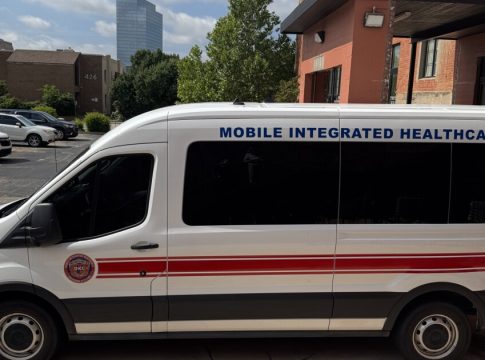Transforming Mental Health Crisis Response in Oklahoma City
In Oklahoma City, a pioneering initiative is reshaping how emergency mental health situations are handled. The city’s Mobile Integrated Healthcare (MIH) program, launched in May, offers a compassionate and effective alternative to traditional police responses, emphasizing care and support for those in need.
A Response to Community Needs
This innovative program arose in response to a series of recommendations aimed at reforming police practices after tragic incidents highlighted systemic issues. Recognizing that many emergencies involve mental health crises, Oklahoma City has taken steps to ensure that individuals experiencing these crises receive appropriate care from trained professionals rather than law enforcement.
The Structure of Support
The MIH program consists of four specialized teams, each designed to address various aspects of mental health emergencies with empathy and expertise.
1. Crisis Call Diversion Team
When someone in crisis calls 911, they may be transferred to the Crisis Call Diversion Team. This team, made up of a supervisor and trained navigators, offers immediate support by stabilizing the situation over the phone. If further assistance is needed, they can dispatch a Crisis Response Team to provide on-site help.
2. Crisis Response Team
Comprised of paramedics and navigators, the Crisis Response Teams are dispatched for calls indicating urgent needs. Their goal is to de-escalate potentially dangerous situations calmly. While the focus is on mental health, law enforcement with specialized training may join if necessary, ensuring a well-rounded response.
3. Alternative Response Team
For less severe crises, the Alternative Response Team steps in, responding to challenges such as substance use disorders and behavioral health issues. This team includes a Certified Peer Support Recovery Specialist, someone who has experienced similar challenges and can offer hope and understanding. This important connection often plays a crucial role in recovery.
4. Community Advocacy Program
The Community Advocacy Program offers support for individuals calling 911 with non-emergency needs. By building relationships and linking them to community resources, this team helps reduce reliance on emergency services, promoting a more sustainable approach to health and well-being.
Funding and Future Aspirations
Funded through the fire department’s budget and city opioid settlement funds, the MIH program began operating in a limited capacity to ensure a thorough integration into existing systems. The team, currently active from 7 a.m. to 11 p.m. daily, aims to expand its outreach and effectiveness continually.
Program director Lori Brown-Loftis emphasizes the value of their work, stating that their team’s diverse backgrounds and expertise enhance the support offered to the community. As the program gains traction, tangible metrics will be shared, illustrating its positive impact on public health and safety.
A Path Forward
The MIH program exemplifies a shift towards viewing mental health through a compassionate lens, where individuals receive the understanding and support they deserve. By focusing on non-punitive approaches, this initiative not only addresses immediate crises but also fosters connections that can lead to long-term recovery.
If you or someone you know is navigating a mental health crisis, it is vital to seek help. Remember, there are compassionate professionals ready to support you, promoting healing and hope in challenging times.

Covers wellness, nutrition, mental health, and daily life tips.
Bio: Talia brings a background in health journalism and holistic living to help readers live better, one tip at a time.

